SUMMARY
This is AI generated summarization, which may have errors. For context, always refer to the full article.
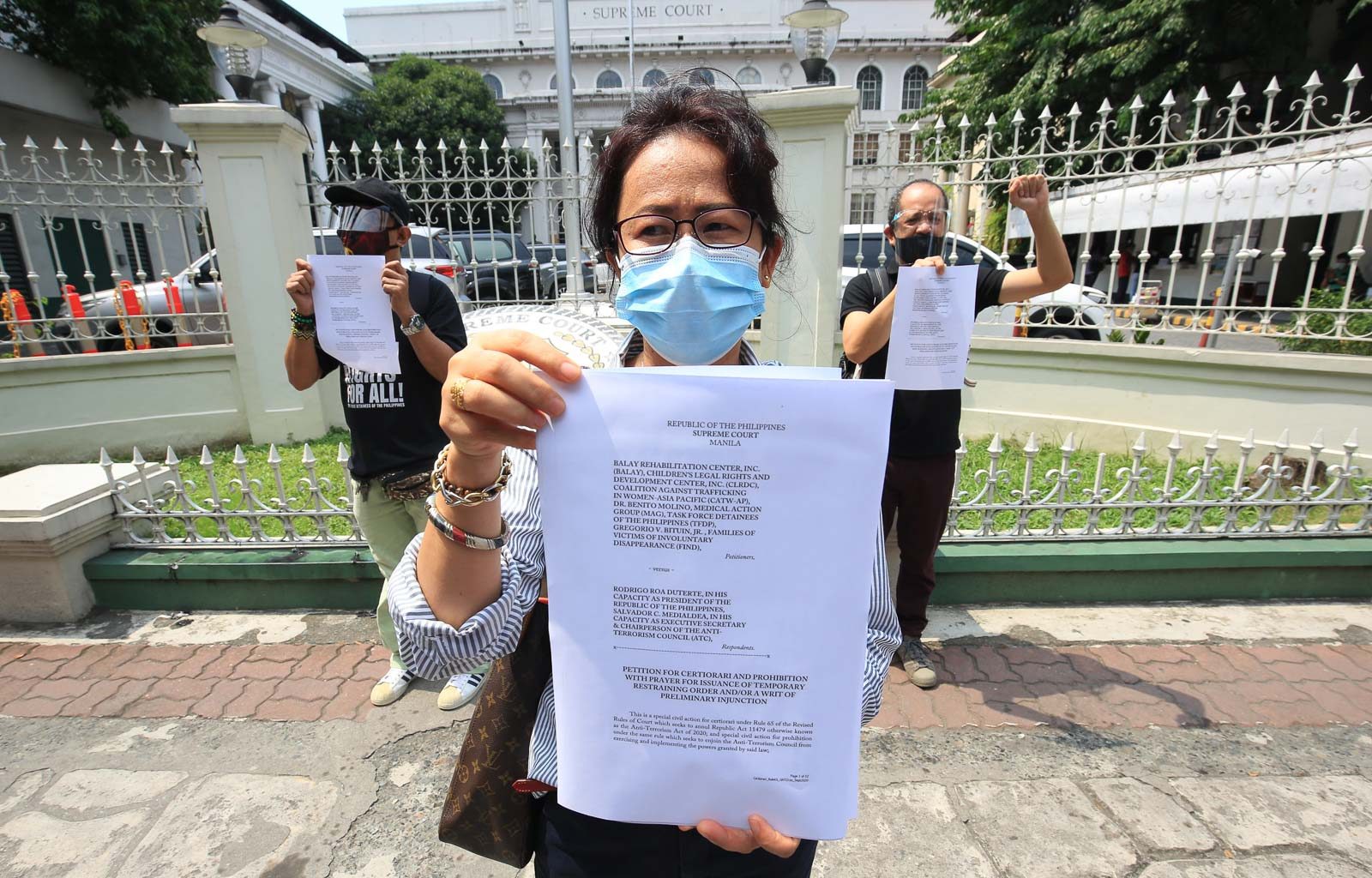
Anti-torture advocates warned of the “conduciveness” for torture and forced confessions in the prolonged detention period that’s allowed under the anti-terrorism law.
In an unprecedented 33rd petition against a Philippine law, anti-torture advocates, women and children’s rights groups, and medical groups asked the Supreme Court on Friday, September 11, to declare the Anti-Terrorism Act of 2020 unconstitutional.
Under Section 29, suspected terrorists can be detained for up to 24 days before being charged in court. The Constitution allows only a 3-day detention period when the writ of habeas corpus is suspended.
The petitioners said the law is reminiscent of the dictatorship of the late president Ferdinand Marcos, whose birthday also fell on Friday. They said the petition also symbolized their protest against the proposed birthday holiday in Ilocos Norte in his honor.
Prior to the signing of the anti-terror law in July, President Rodrigo Duterte certified the bill as urgent, even as rights groups warned it would stifle dissent and pose danger to government critics.
Clashing with anti-torture law
Petitioners from the United Against Torture Coalition-Philippines (UATC) said the anti-terrorism law contravenes Republic Act 9745, or the Anti-Torture Act of 2009 that criminalizes torture and ill-treatment.
UATC said this is “a condition that is conducive to the person detained for being tortured or coerced into involuntary confession, forcibly made to disappear, or even summarily executed which the anti-torture law aims to prevent.”
“Warrantless arrests of designated suspects and prolonged pre-trial detention heighten the risk as shown by years of documented cases,” said Cristina Sevilla, legal counsel for the petitioners.
Co-petitioner Coalition Against Trafficking in Women-Asia Pacific (CATW-AP) warned the detention period could pose dangers for vulnerable women.
“Given the dismal human rights record of the Duterte government and its misogynistic acts, the implementation of the ATA will have a chilling effect to every woman, especially the most vulnerable among us such as the prostituted women who have experienced acts of torture in the hands of authorities,” said CATW-AP executive director Jean Enriquez.
Effect on humanitarian workers
Another petitioner, Medical Action Group executive director Edeliza Hernandez said the controversial law could “undermine” and “discredit” the work of humanitarian workers, and healthcare professionals who provide medical services and treat wounded suspected terrorists, since they could be taken as “providing material support for terrorism.”
The terror law criminalizes “facilitation” of terrorism in Section 6.
“We must ensure everyone from ambulance drivers to doctors can work without fear of prosecution or sanction,” said Hernandez.
Forensic expert and petitioner Benito Molino said the law could give authorities more room to escape accountability for possible torture against suspected terrorists.
Children’s Legal Rights and Development Center Inc. warned that authorities may use the terror law against minors “in the same manner the anti-drug war was ruthlessly enforced by authorities that killed the likes of Kian [Delos Santos] and orphaned many children.” (LIST: Minors, college students killed in Duterte’s drug war)
The Supreme Court earlier said it will hold oral arguments on the petitions by end of September.
But Solicitor General Jose Calida asked the Court to cancel the oral arguments, citing logistical problems caused by the pandemic, among other reasons. The justices have not acted on Calida’s motion. – Rappler.com
Add a comment
How does this make you feel?



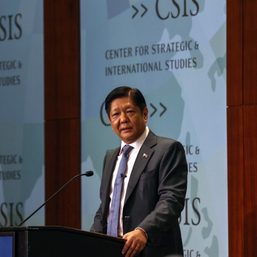
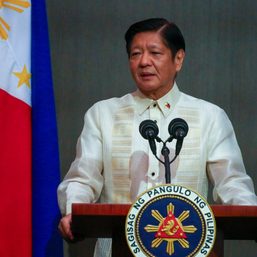
![[Newspoint] A little walk-back](https://www.rappler.com/tachyon/2024/05/tl-a-little-walk-back-05182024.jpg?resize=257%2C257&crop=215px%2C0px%2C720px%2C720px)

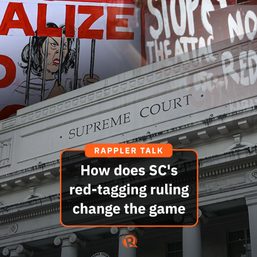

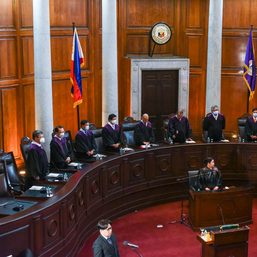
There are no comments yet. Add your comment to start the conversation.